How Telltale Games used TV to redefine video games
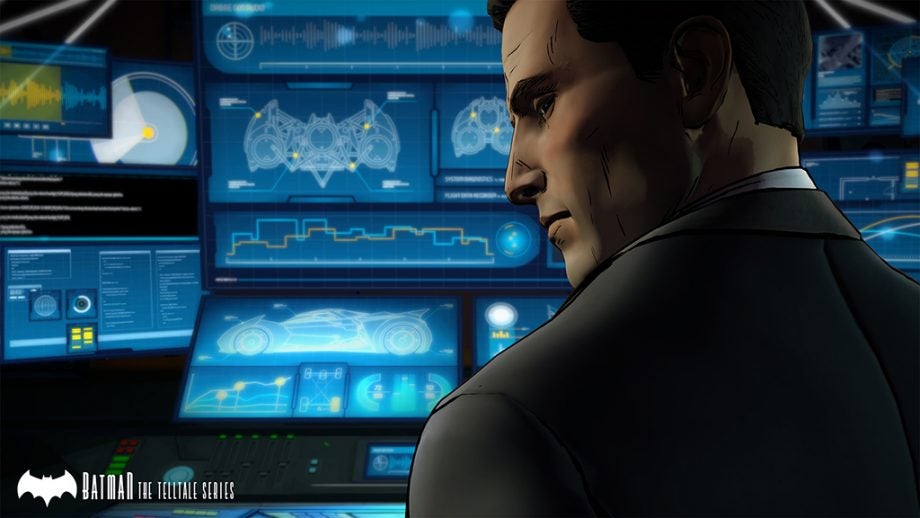
Formed from the remnants of LucasArts’ crumbling adventure game division in 2004, Telltale was born into a world where its bread and butter – adventure games – had slowly become a relic.
After years of entertaining gamers with titles such as Escape from Monkey Island and Sam & Max, point-and-click adventure games just weren’t selling anymore. However, the founders of Telltale were convinced that there remained people out there who wanted great storytelling in video games.
Unconcerned with the direction in which the rest of the industry was heading, the new studio got straight to work, creating a brand-new engine in only a few short months. With sparkly new engine in-hand, Telltale now needed a low-risk test project, something that not only fit the developer’s model but also that was an easy sell. After watching TV one night, the company found its muse. “Poker,” reveals Telltale’s head of creative communications, Job Stauffer, with a smile.
“Poker was BIG at the time. In the mid-2000s, it was on TV every night. Every network was getting into the game.” Telltale’s late-night TV inspiration was quickly followed by a few months of late nights at the office, until finally the developer had created its first ever game: Telltale Texas Hold’em.
Poker may seem like a bizarre choice for a studio whose modus operandi is storytelling, yet as a game that demands quick-witted decisions while also dealing its fair share of emotional blows, it very much laid the groundwork for what was to come.
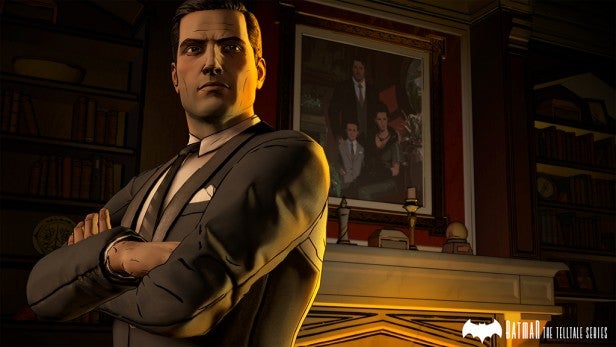
While this was the last time the studio created a Poker title, Telltale Texas Hold’em certainly wasn’t the last time Telltale took inspiration from the world of TV.
Going on to release a moderately successful adaptation of cult graphic novel Bone, Ubisoft soon commissioned the studio to work on a episodic adventure game based on hit US crime show, CSI. With limited resources and a few other projects creeping into the pipeline, Telltale soon realised that in order to be able to tell multiple stories at one time it needed to take more than just inspiration from TV shows – it needed to start creating like a TV studio too.
Embracing an episodic approach for most of its games, Telltale quickly became a different beast to most other developers, changing the way it operated to reflect that. “[We’re] structured more like a TV studio,” explains Stauffer. “Just like when you go to the Warner Bros lot and you see all its different buildings, and in each building there’s a different show or movie being made – we have that same infrastructure.”
Related: Hajime Tabata talks about the making of Final Fantasy 15
Initially developing in this manner provided a clever method by which to divide the workload and to keep the lights on at Telltale. However, soon it became a key part of the creative process too.
“Producing, designing, writing and creating episodically for over a decade… everything you’ve ever seen from Telltale has influenced the next thing and that’s episode to episode, series to series. Sometimes, there’s a technique, camera work or even a new test mechanic that will happen in, say, a Walking Dead title, which you’ll then find in the next episode of a Batman title. Every time there are two different episodes [running simultaneously], we’re learning.”
Working in the manner of a TV studio and being able to partner with creative people who work in various mediums has meant that Telltale has a different perspective on games and how it wants people to consume them.
“We look to content providers and creators such as Netflix, Amazon, Hulu and HBO. A lot of game developers might not see them as an inspiration or model, but we do,” explains Stauffer.
“In the same way you can watch a show on your TV, on Netflix.. your phone, your tablet.. your PC, you can play a Telltale game on all those devices too. We’re platform agnostic. It’s just been in our DNA to be everywhere and to feel ubiquitous.”
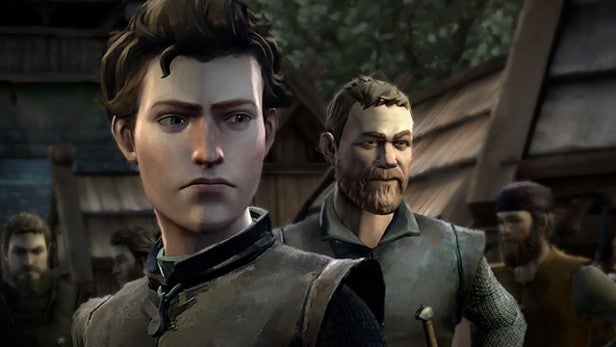
In an industry where Sony and Microsoft regularly break the bank to secure the latest and greatest exclusives, it’s definitely a different approach. Yet it’s more than just about getting its games into the hands of more players.
This view of platforms as Netflix-style delivery methods for its content seems to be at the heart of everything Telltale does, with its gameplay straddling the lines between a traditional gaming experience and an interactive TV show.
“Our games are meant to be consumed in the same language as television and film. Where we’re watching scenes, we’re controlling dialogue. It feels like TV, it feels like a movie – it’s all-intentional.’ says Stauffer. “I guess we feel more like the content creators and providers in a sort of cable era than a traditional games studio.”
Related: Deus Ex: Mankind Divided review
Yet while Telltale’s bold new approach to both development and adventure games has always been intriguing, it wasn’t until the developer released The Walking Dead in 2012 that it realised there was a big market for its unique brand of storytelling.
“That was a proud moment for us at Telltale,’ recalls Stauffer. “Adventure games had gone away for a long time, or if they hadn’t then no-one was really paying attention. We’re proud to have felt like we could – mechanically, at least – bring adventure back to the forefront.”
Aside from creating a great game, a large part of Telltale’s success is a result of the studio choosing to embrace digital distribution, something that wasn’t done for big-budget titles at the time.
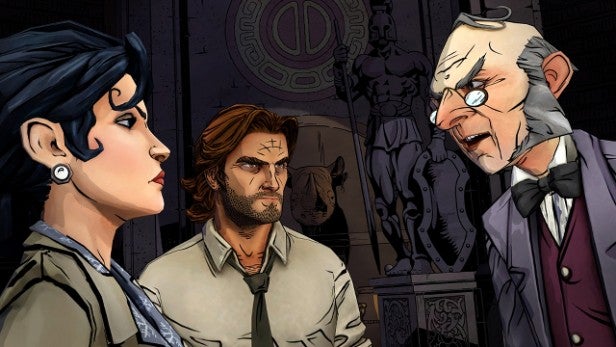
“In 2012, people believed that downloadable games didn’t deserve awards, or couldn’t be ‘game of the year’ because they weren’t real games. If you think about that now, in 2016, it sounds insane. The distribution format and the way we consume games has changed so much.”
Once again, Telltale chose to go against conventional wisdom and won, playing a key role in changing public and industry perception on downloadable games. “I think the digital distribution method in general has levelled the playing field.” It doesn’t matter whether you’re indie/non-indie or how big your studio is; it’s become irrelevant. “We’re all hitting the same App Store, the same PlayStation store, Steam and so on. It really isn’t the size of the team that matters; it’s just the content,” Stauffer says.
Yet while Telltale’s unique method of delivery and development undoubtedly resulted in something that initially felt bold and refreshing, the studio’s recent games have been criticised by some as iterative.
“At Telltale a lot of our games are intentionally meant to feel similar in mechanics. The way they’re controlled, some people call that a formula; we’re very insistent that this is a format. Formula happens in stories and with content.” Stauffer believes that the format Telltale Games has created is the best method to tell these stories and is a key contributor to making people feel instantly comfortable with any Telltale game.
“We don’t feel we’ve created a formula, we’ve created a format,” huffs Stauffer. “We haven’t created a genre. When you watch TV, or read a book, read comics, or watch a film, story defines your genre. With us it’s intentional to ensure that when you’re playing The Walking Dead or Batman or Minecraft, it’s a familiar experience; it’s identifiably Telltale.
“Anyone who’s played The Walking Dead can easily transition from another title such as Batman into Minecraft with their kids. familiar mechanics are key there, and we’re aware of that and embracing it.”
Related: FIFA 17 vs PES 2017
While this makes sense given the studio’s desire to create a language of entertainment with which players can feel comfortable, it turns out that in spite of all that, Telltale has just released a game that adopts an entirely new format.
Created by Night School Studio, the team behind indie darling Oxenfree, the brand new mobile title Mr Robot was a collaboration with Telltale. They weren’t just trusting anyone, however: lead by ex-Telltale developer Adam Hines, Mr Robot creators Night School were all to aware of the format but opted to do something a little different.
The premise of the game is that you discover a hacker’s mobile and begin to receive text messages sent by characters from the show. Framed like a real-world text messaging app, Mr Robot does away with the3 D visuals and traditional “gamey” qualities of previous Telltale titles, creating something that feels refreshing and – most importantly – authentic to the world of Mr Robot.
“Mr Robot viewers know the show and know the universe in which it’s set. It’s a group of hackers, who obviously communicate over closed networks or social networks, as they would in the real world.” With the game, they’re giving that feel to the player and putting it on a platform where it feels natural. “That’s where these files exist for these characters in this universe; it just made a whole lot of sense.”
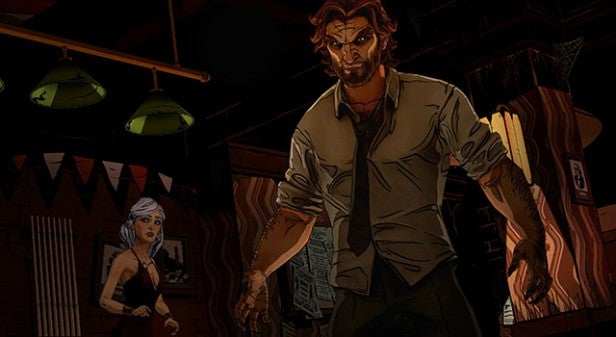
Not content to let a good format get away, Telltale is considering using this approach for other stories in the future. “We think that this new format that’s specifically been developed for Mr Robot could apply to multiple genres.”
Working with writers, artists and animators from all disciplines, Mr Robot is Telltale’s first time working in conjunction with another studio – but Stauffer hints that working with external studios is something the developer would consider again.
“We have this desire to work with some of the best creatives in the industry, both internally and externally, so it wouldn’t be out of the question to see a time in the future where we’re working with another developer, where they’re creating something alongside us.”
Related: Battlefield 1 vs Infinite Warfare
Mr Robot isn’t the only new type of experience Telltale will be releasing, however. With immersion being a key part of what Telltale is about, virtual reality is an obvious fit for the studio.
“We’re definitely looking at VR. Everything we do has been in the language of cinema, which is so very different from the language of presence. Marrying those two and discovering what is going to define a Telltale experience in VR is something we’re excited about. We’ll have more to say on VR in the near future, but it won’t be until the turn of the calendar,” Stauffer grins.
It appears that this platform ubiquity might extend to Nintendo’s upcoming NX, too. “Our strategy for platform ubiquity will certainly be extending to platforms from Nintendo as they become available.”
As head of PR and communications at Telltale, it’s no surprise that Stauffer often comes across as a well-trained spokesman for the company. Still, as defensive as he is about Telltale’s “format”, it’s easy to see that the studio really is more concerned with telling a good story than with needlessly changing its game mechanics.
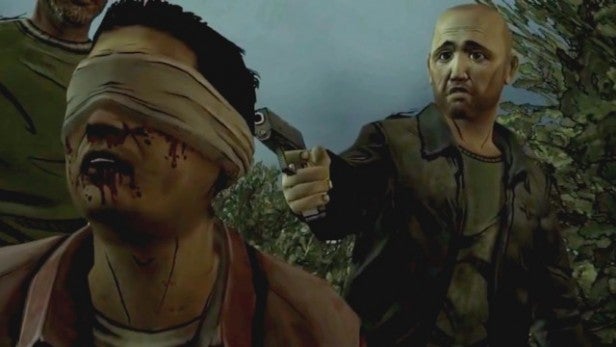
“The games industry works so hard to define games by their mechanics: shooters, fighting game, racing game, RPG. For us, since we sit between TV, film and games, our genres are defined by the stories,” says Stauffer. “I think it would be healthy for the industry to start thinking about its genres beyond its mechanics, and instead help character, story and place to define genre.”
So will Telltale continue to innovate or stick to its well-worn format? With VR projects and external collaborations, the studio’s potential to push the medium further certainly looks promising – but only time will tell.
Still, if the past has taught us anything, it’s to not bet against Telltale.

